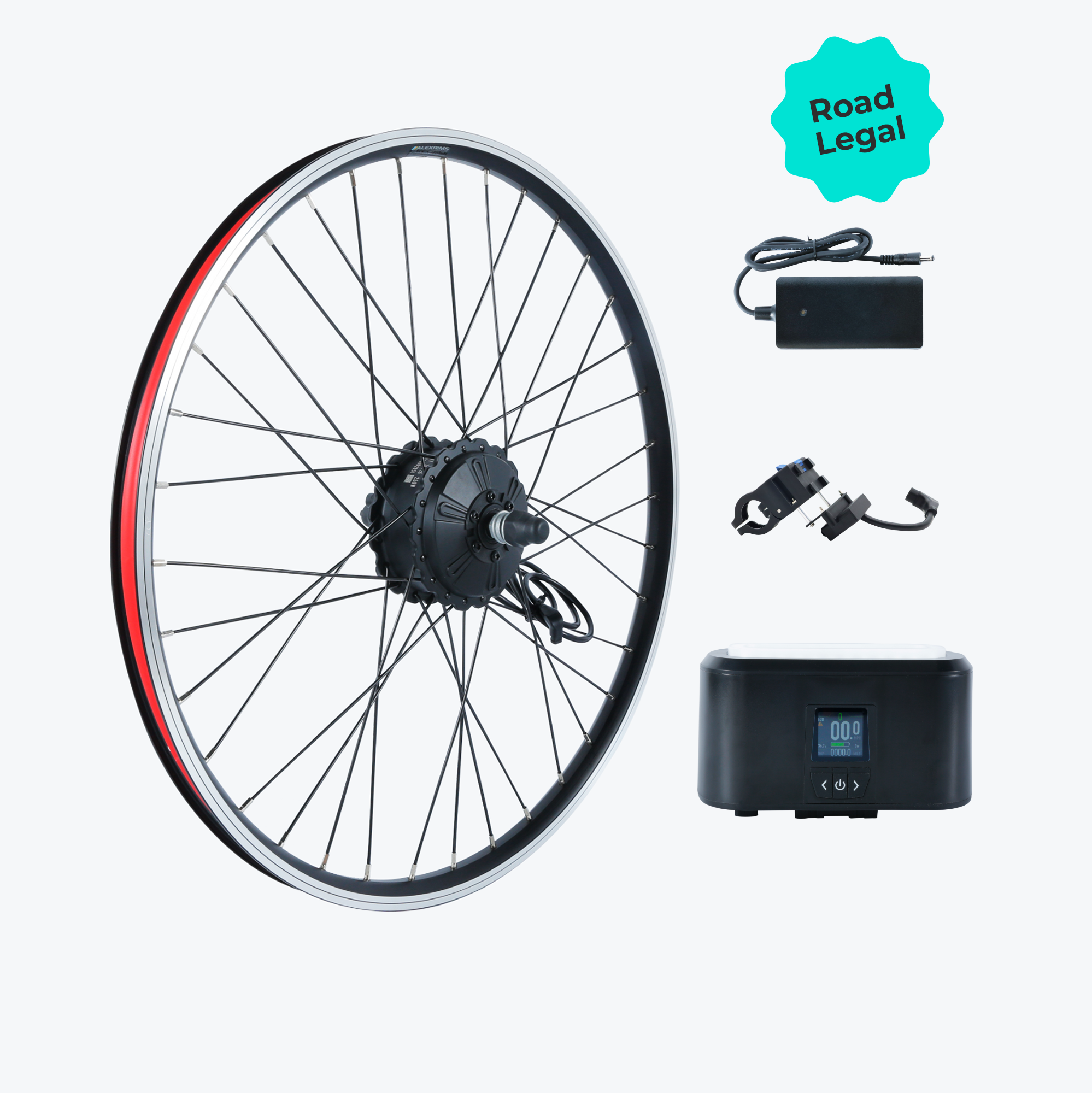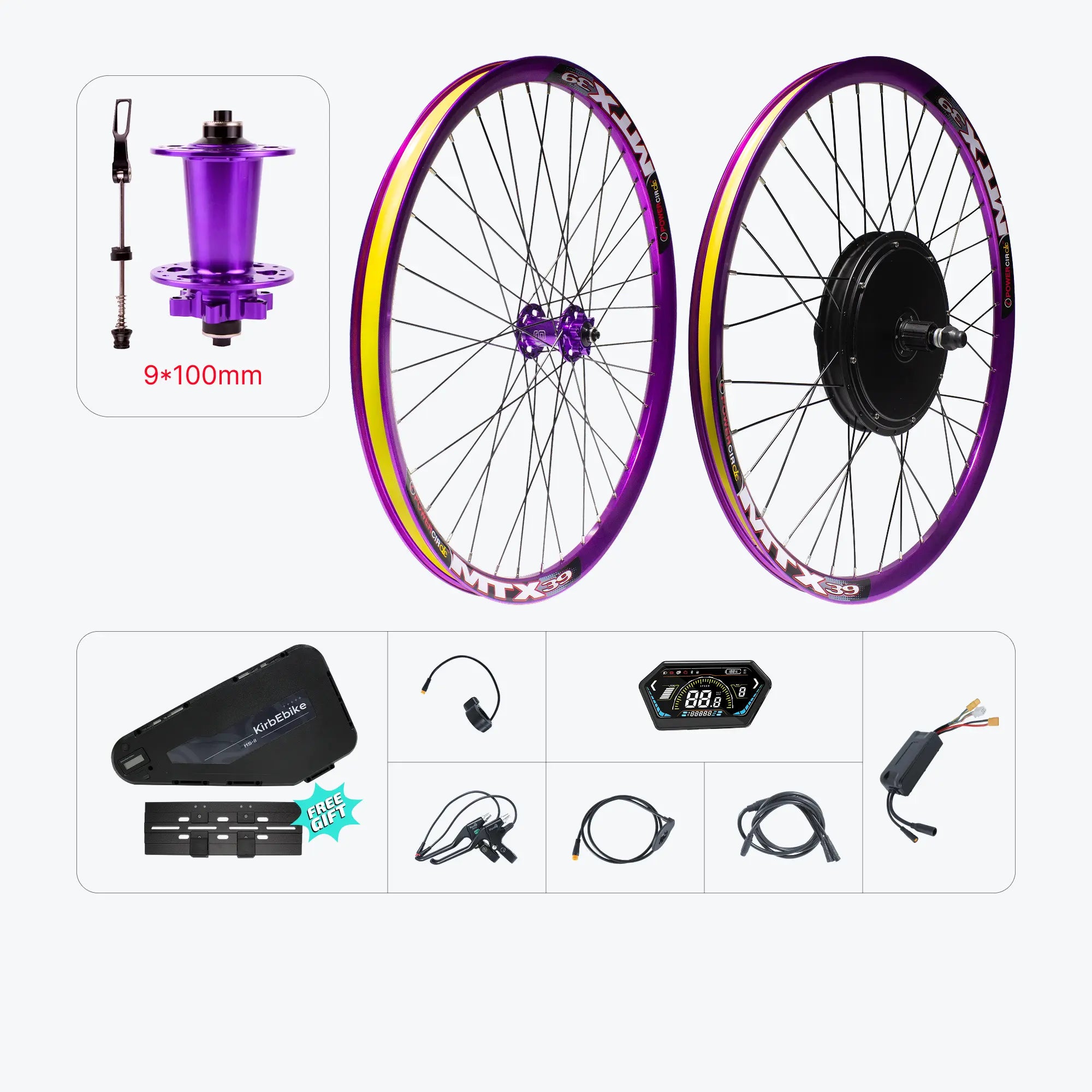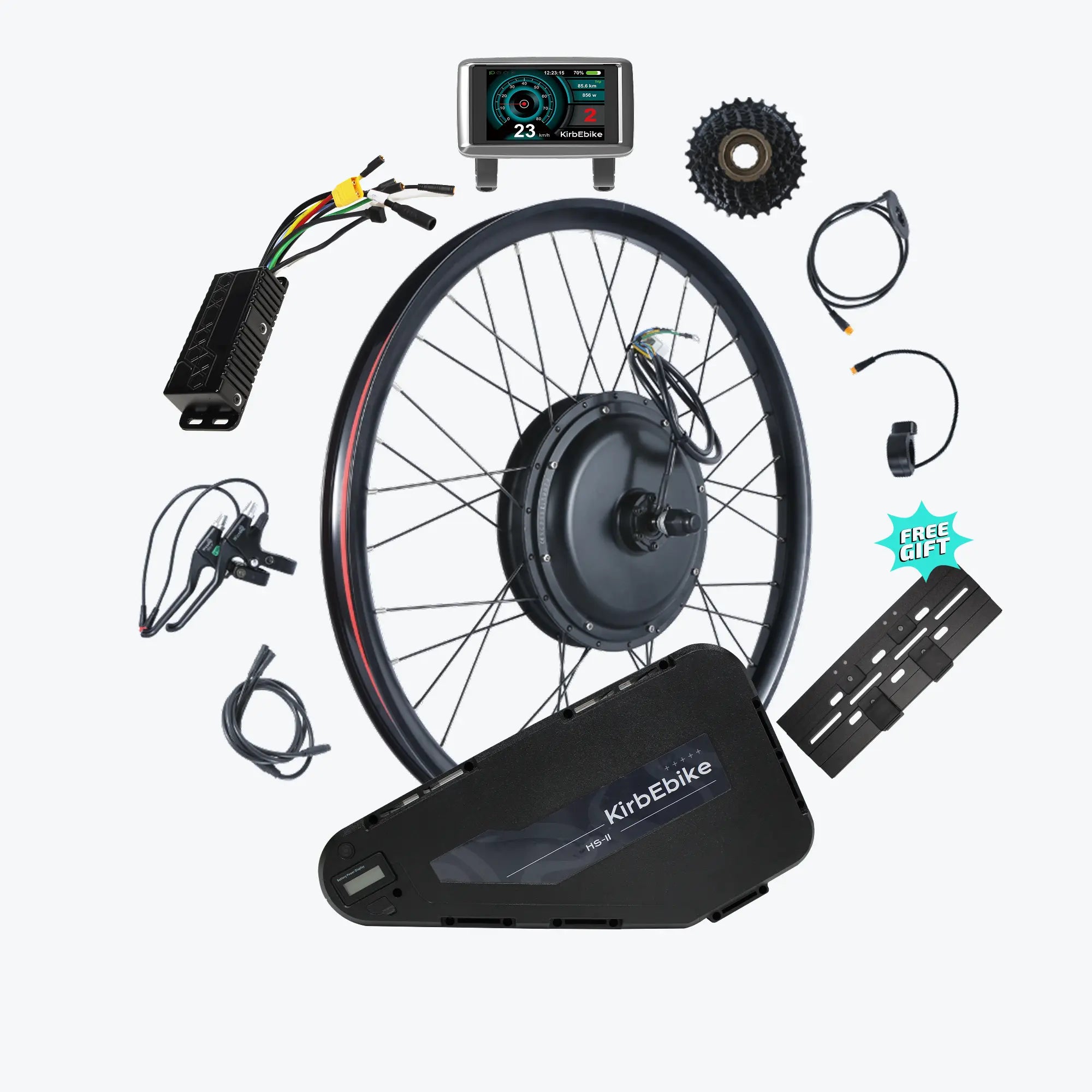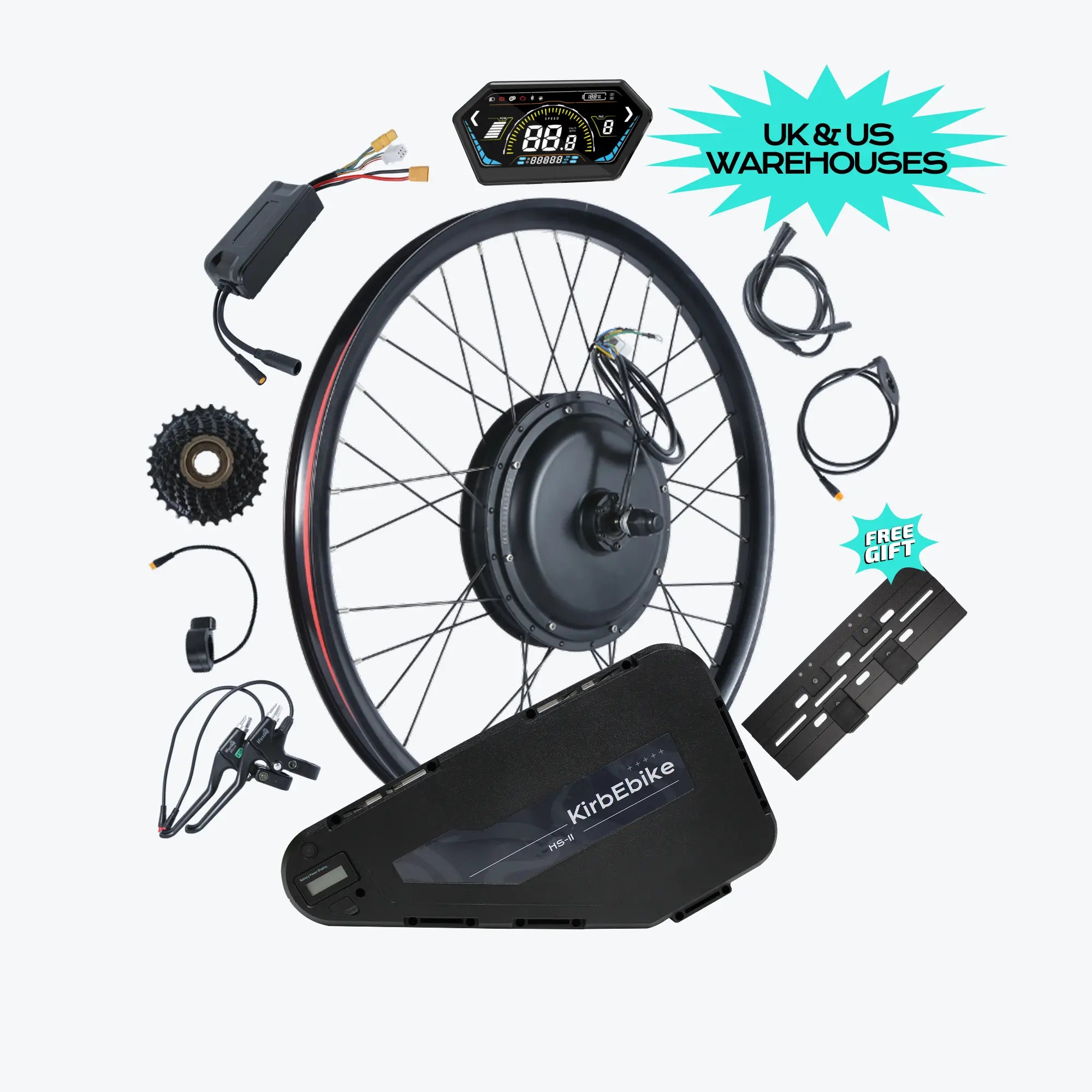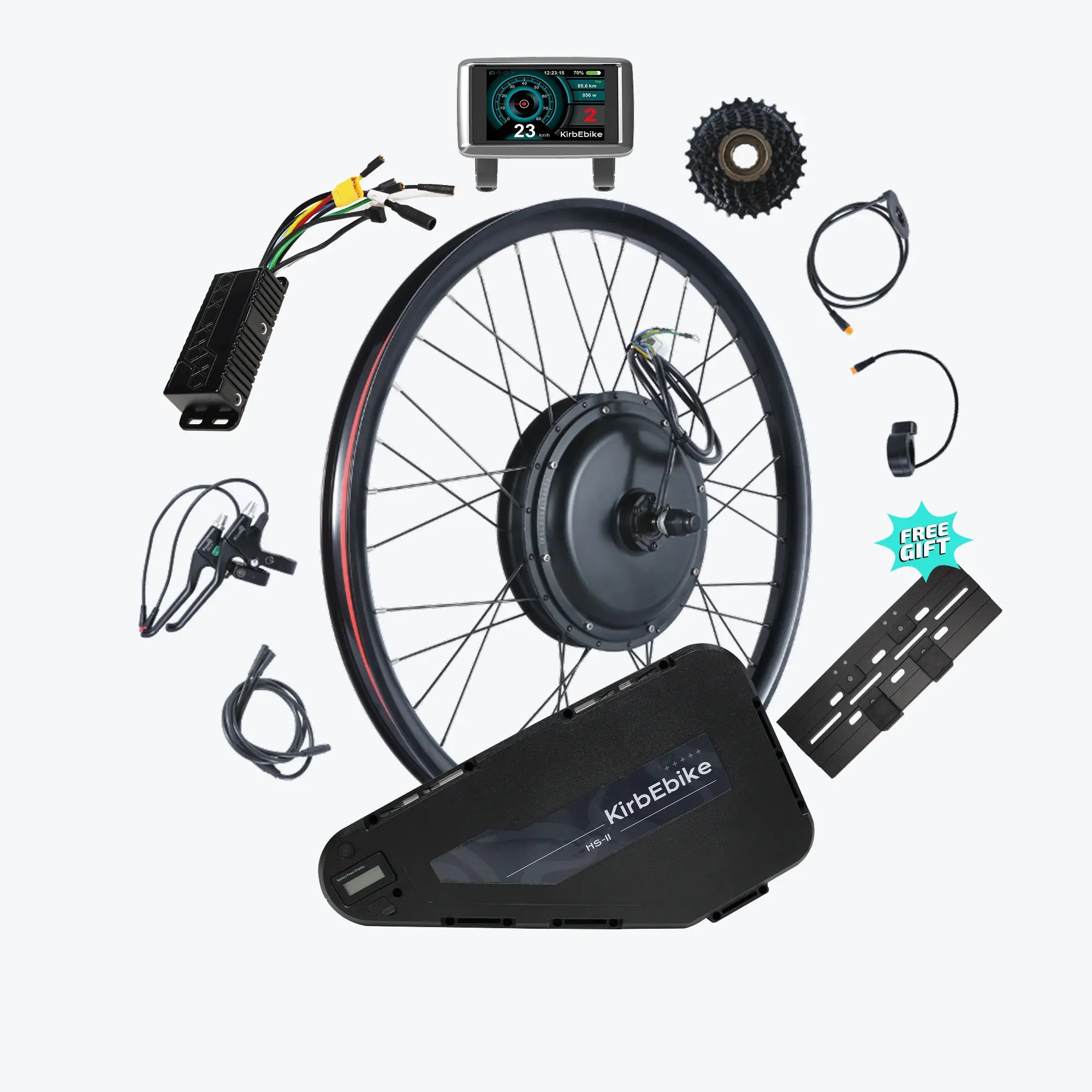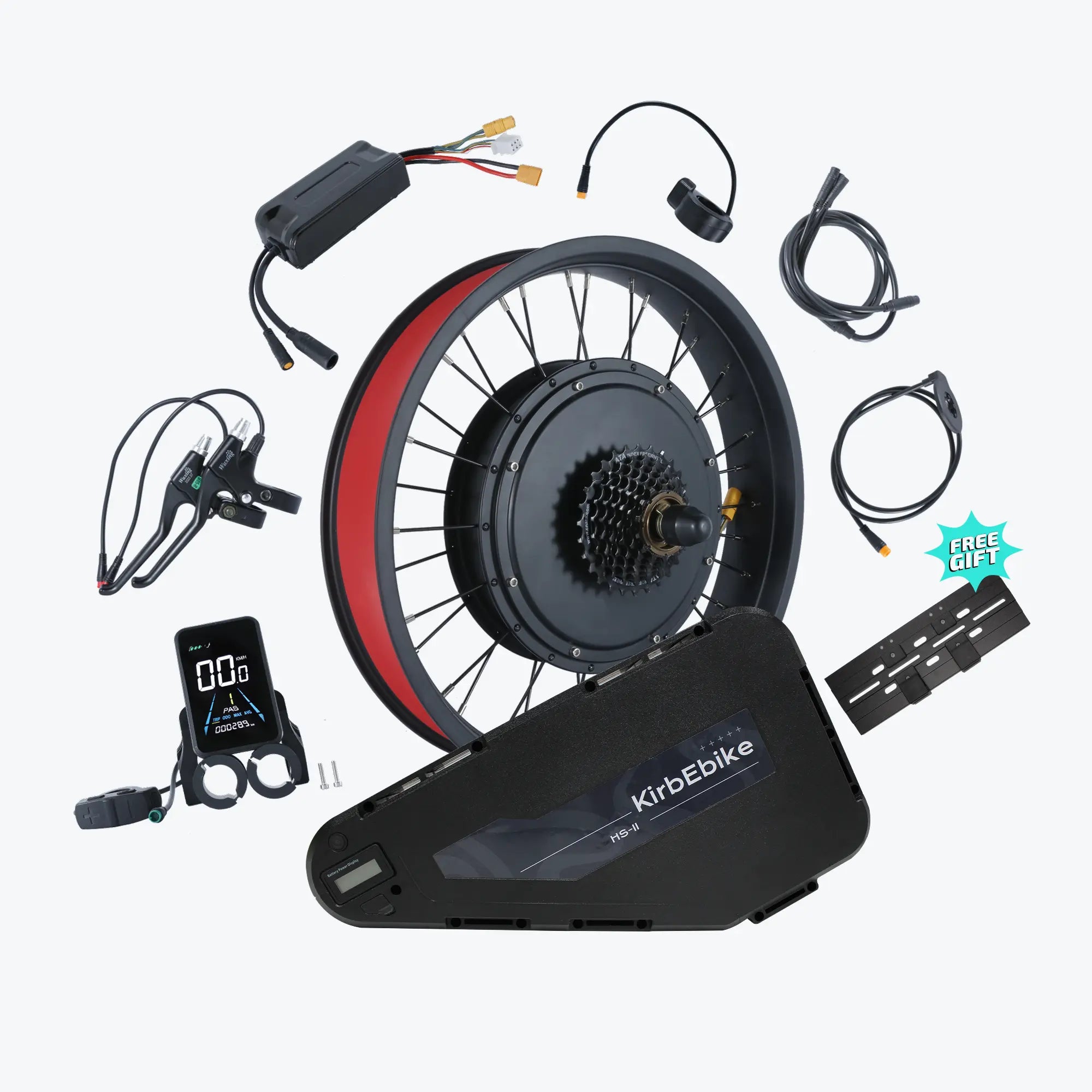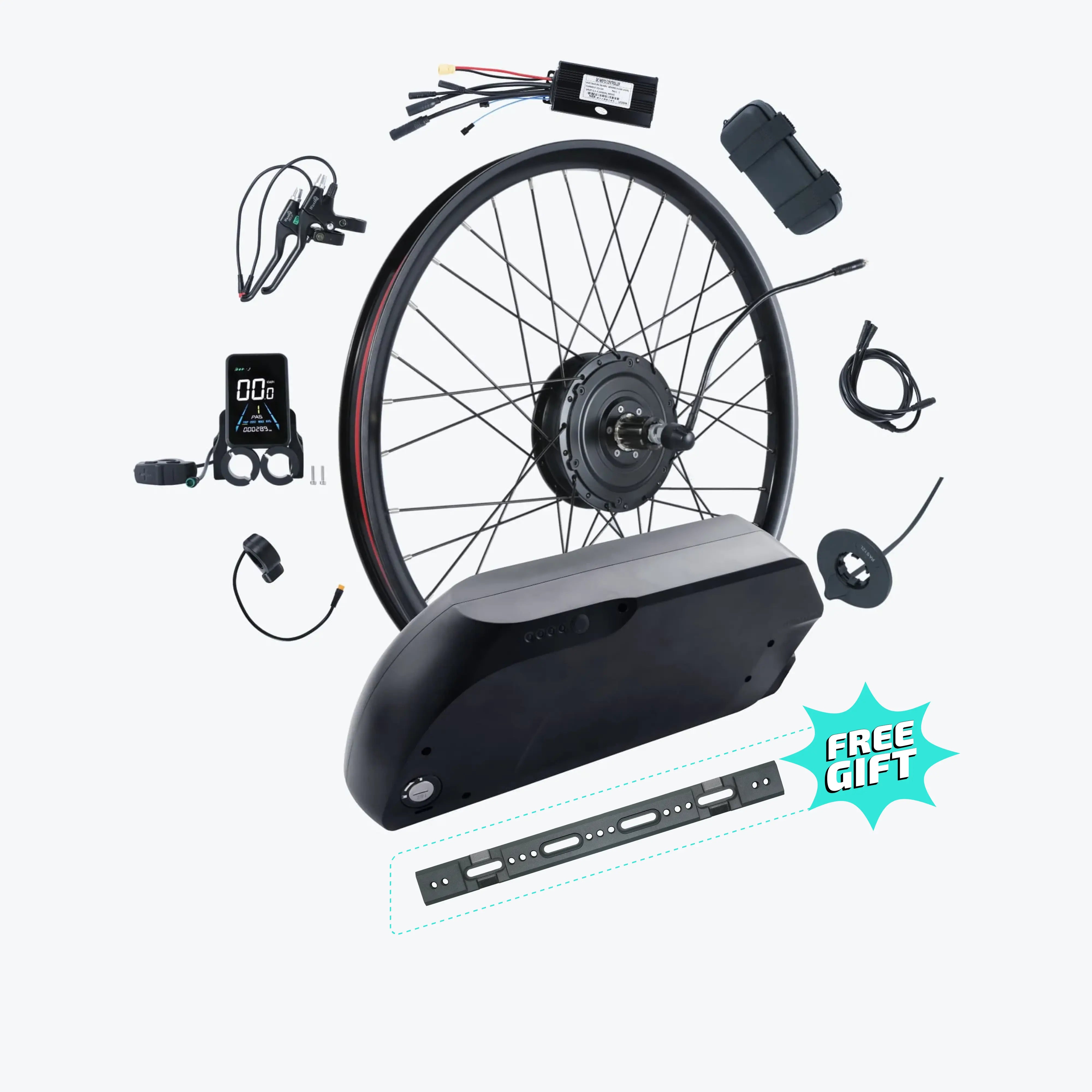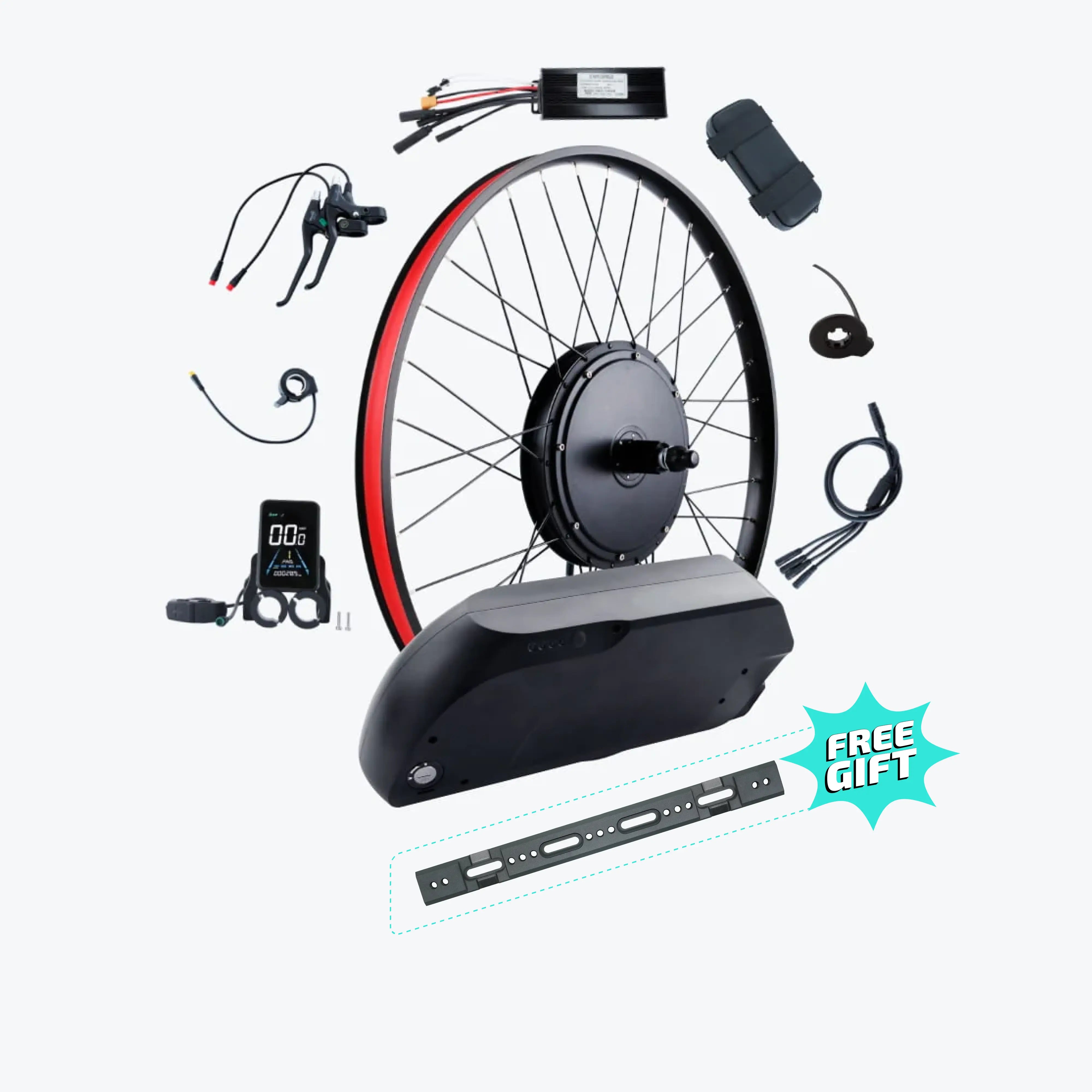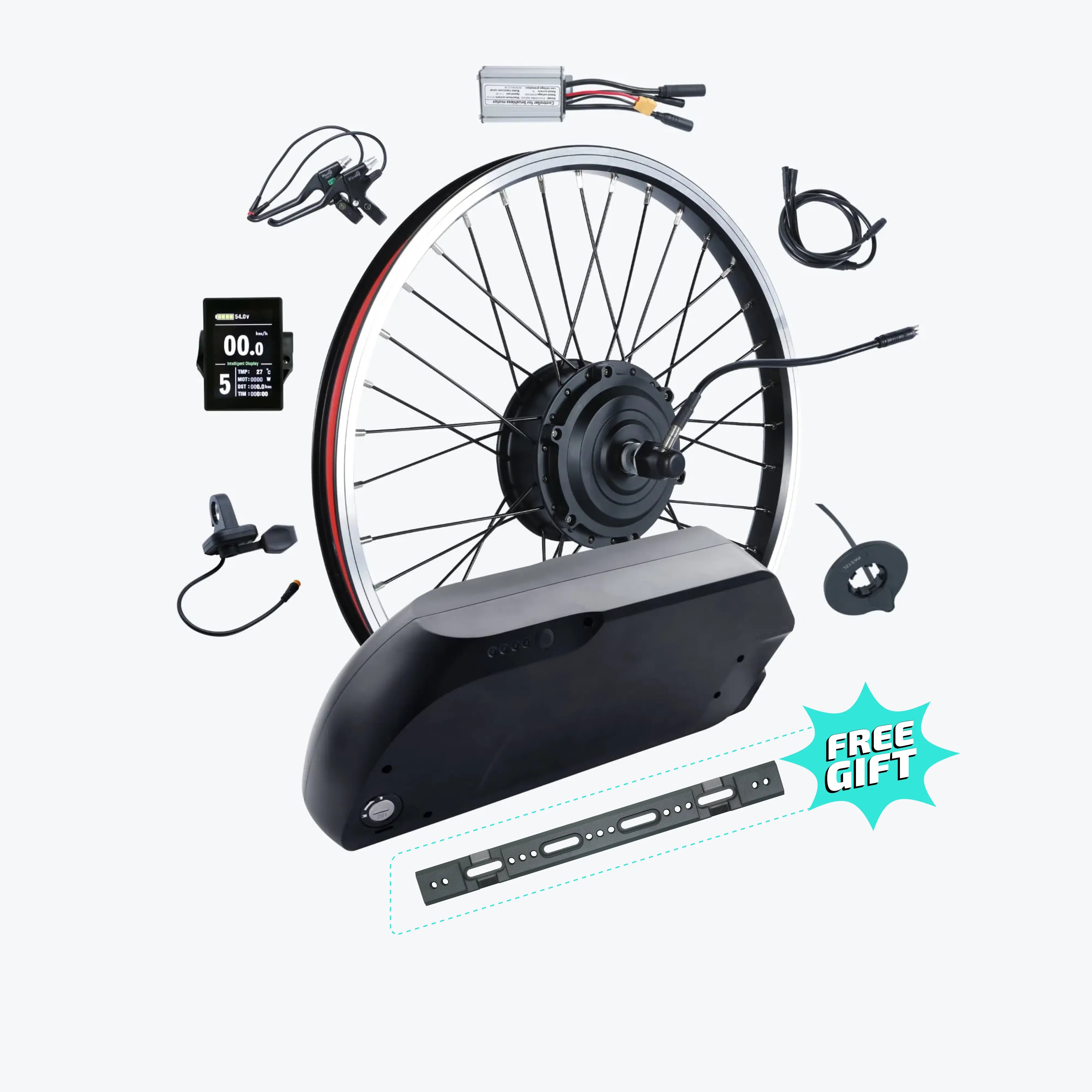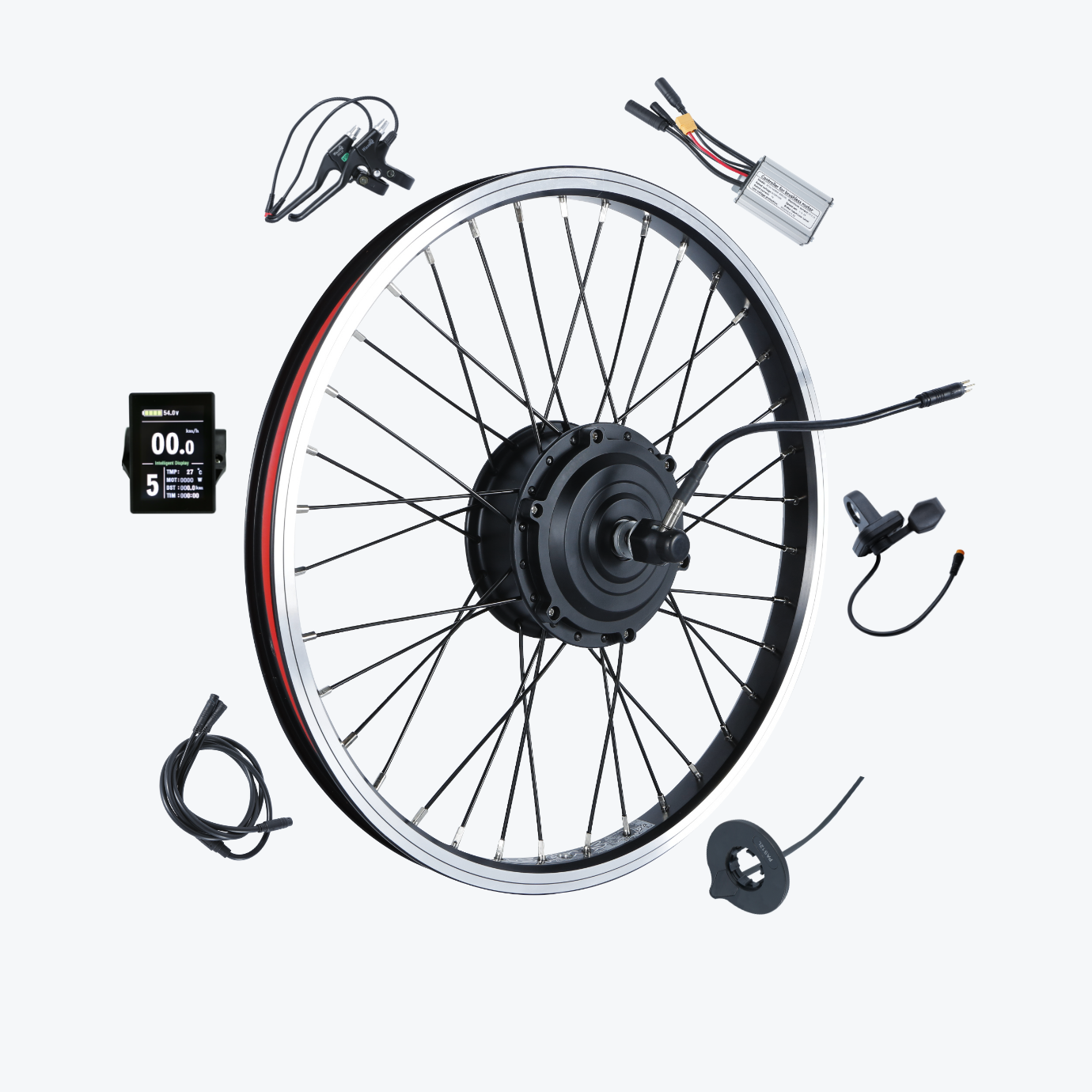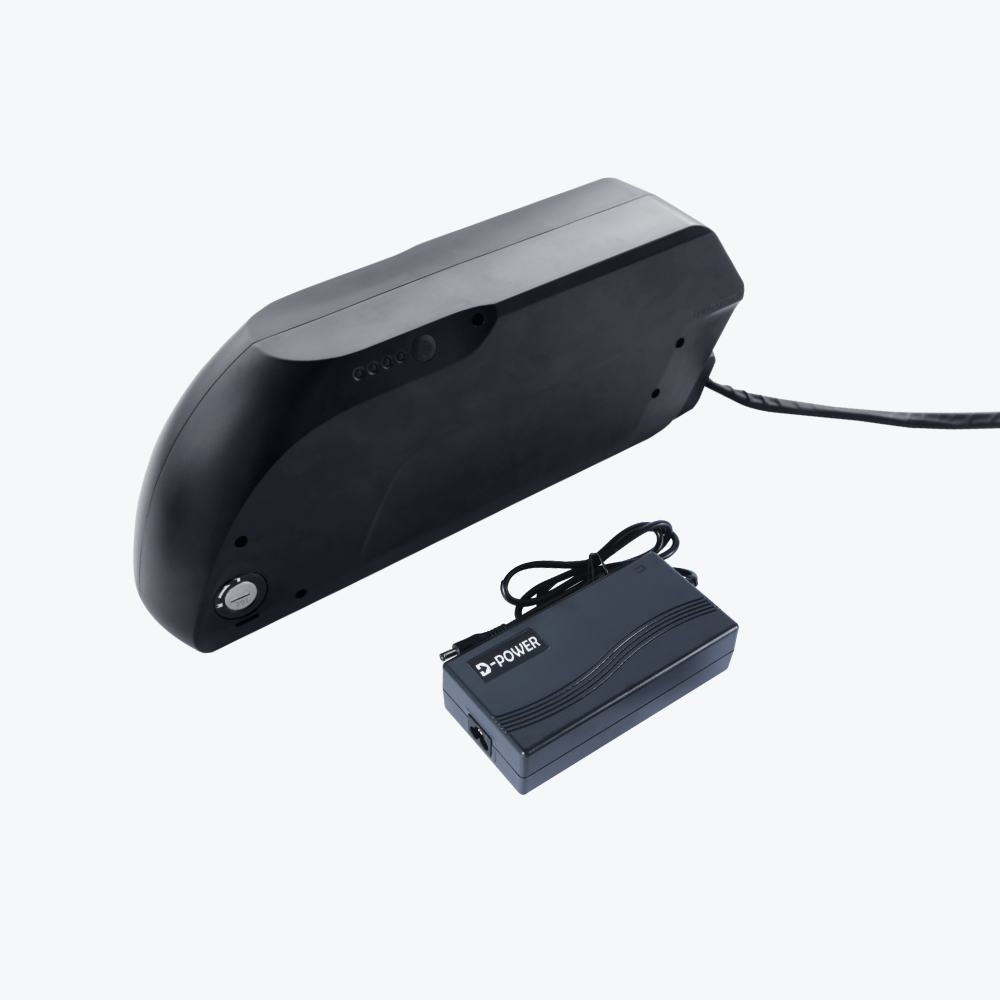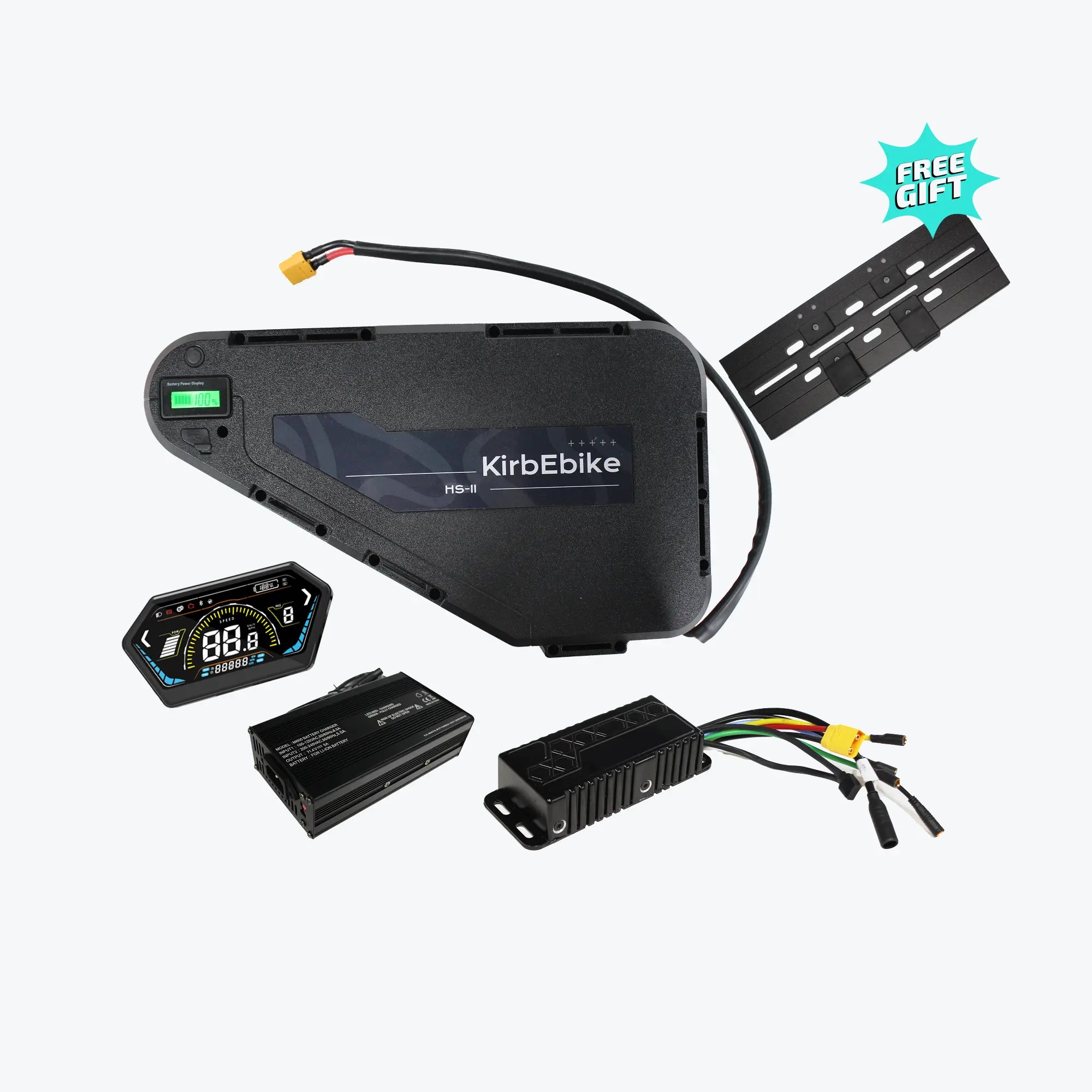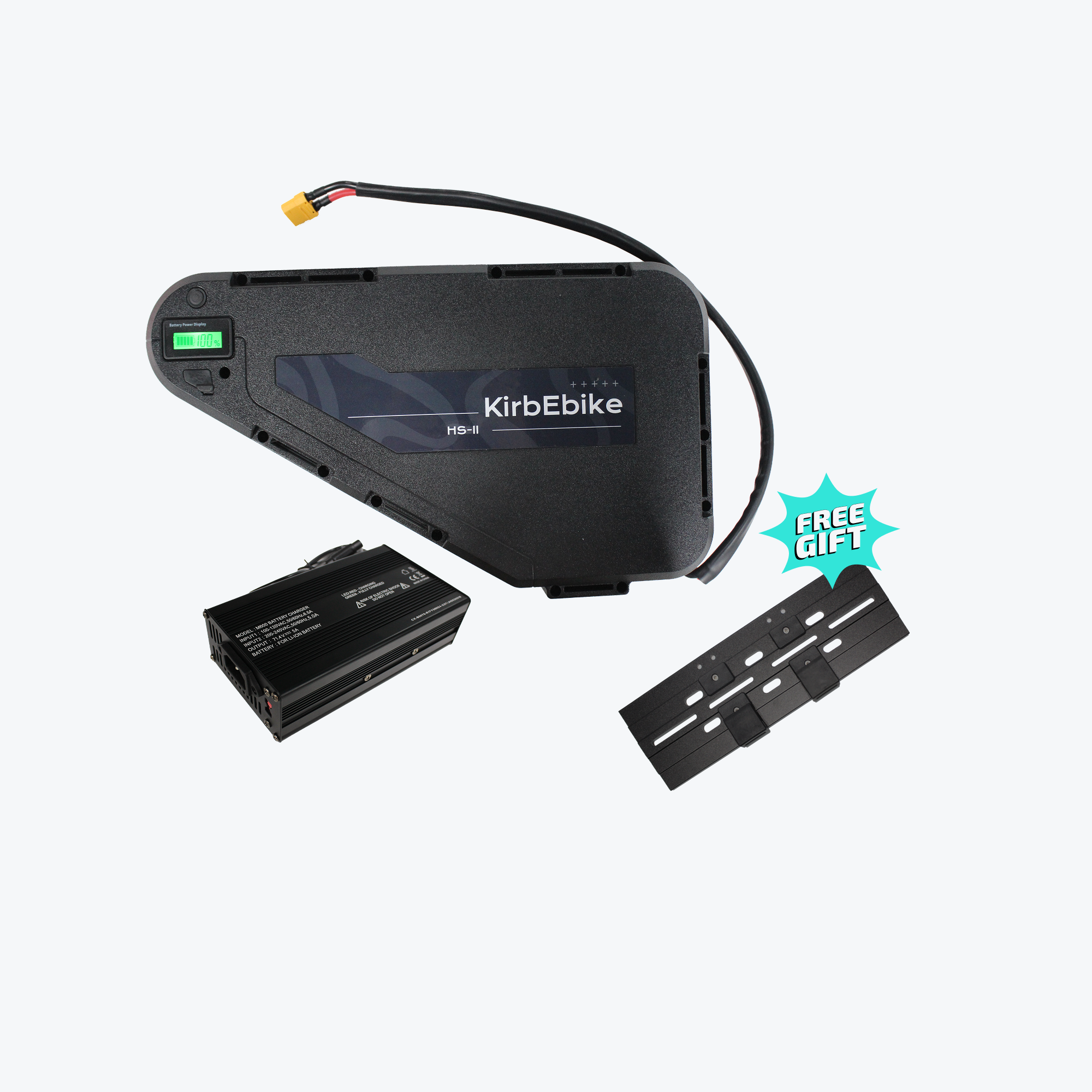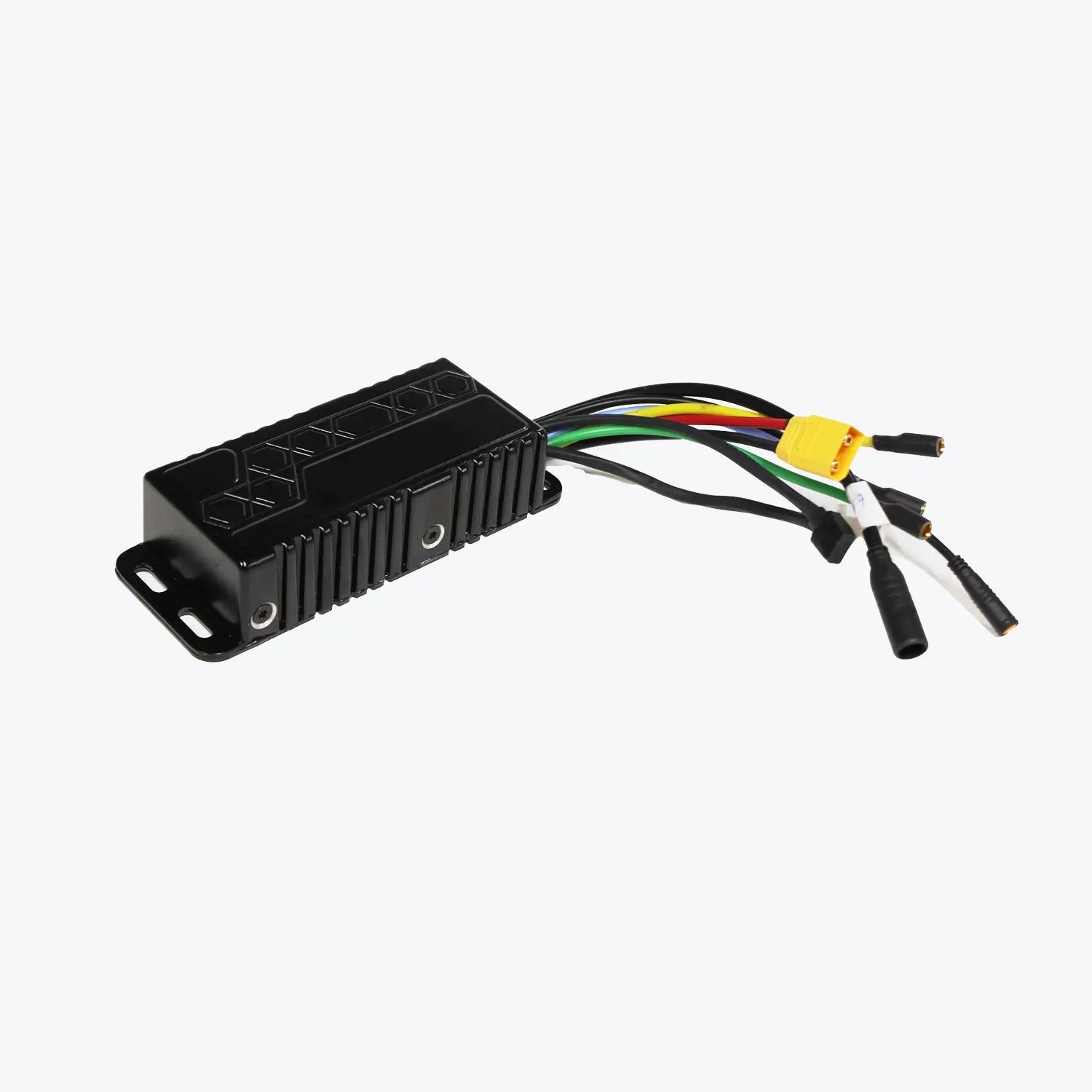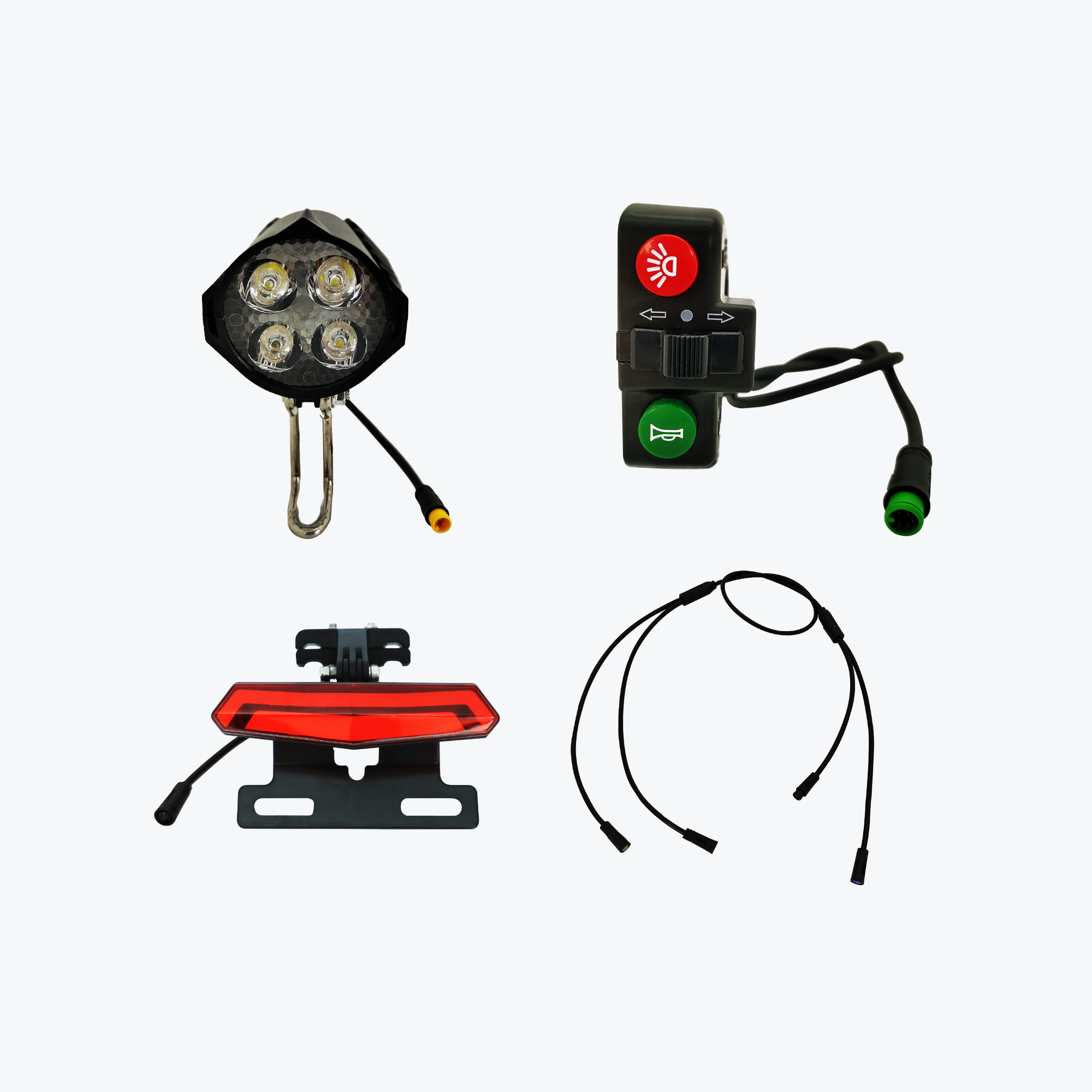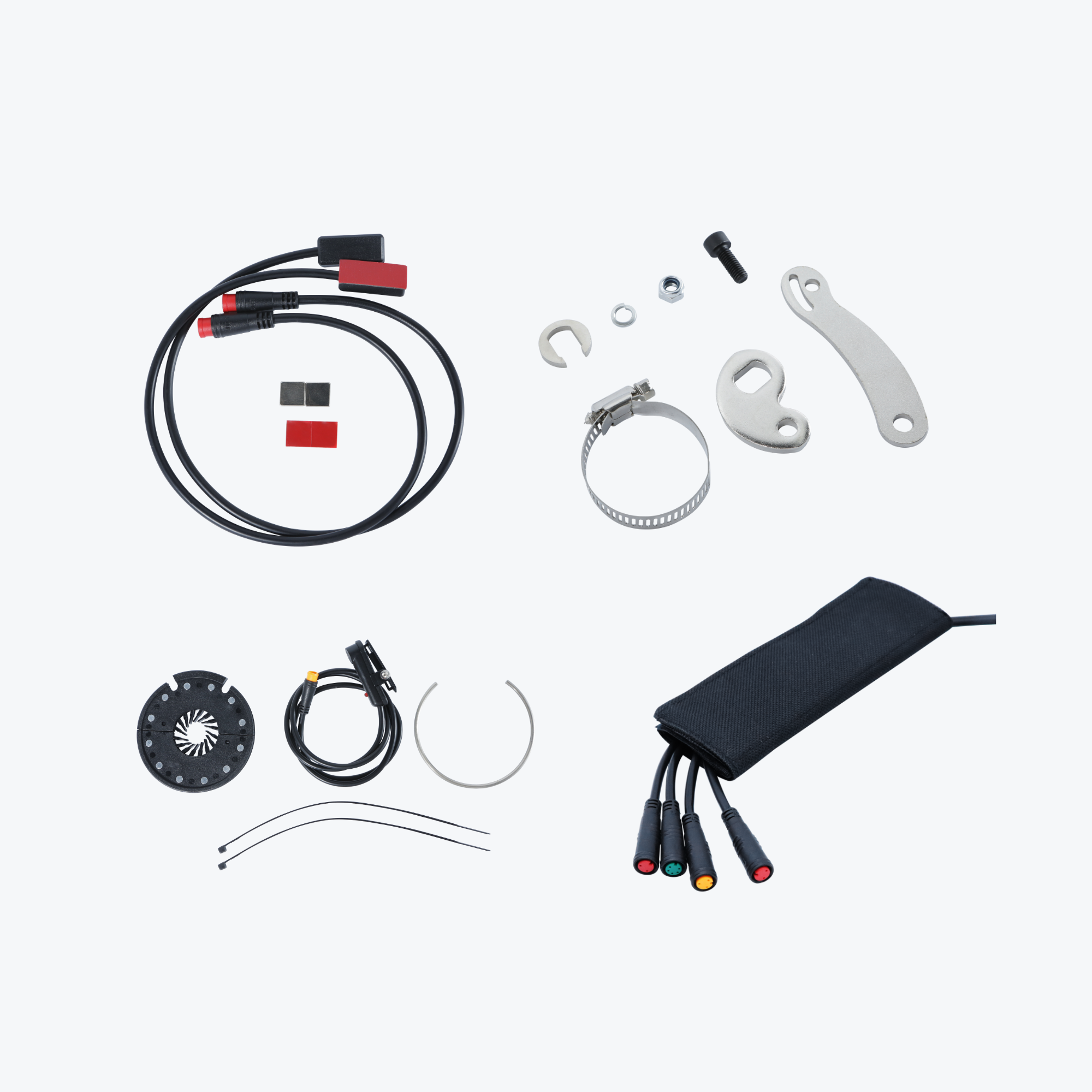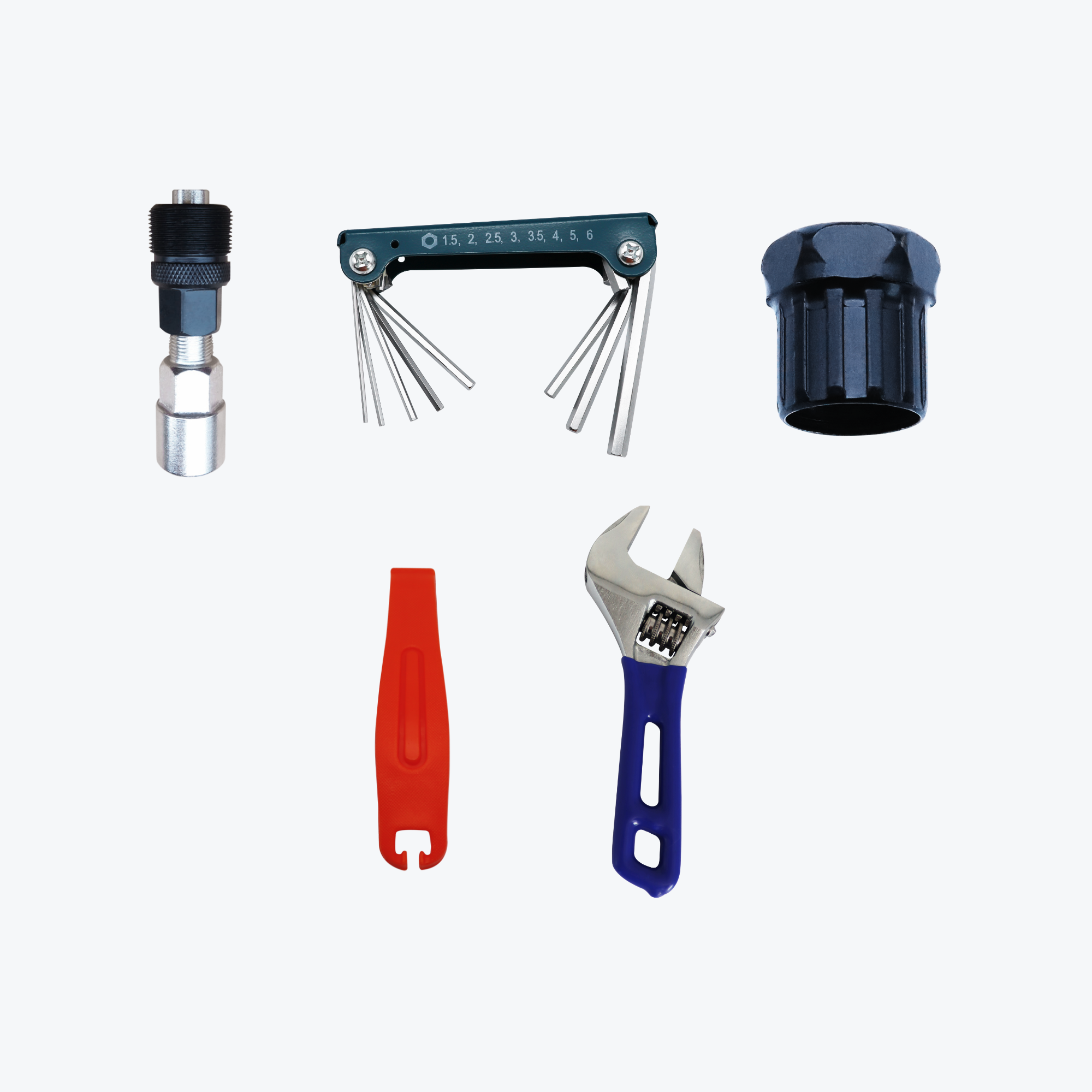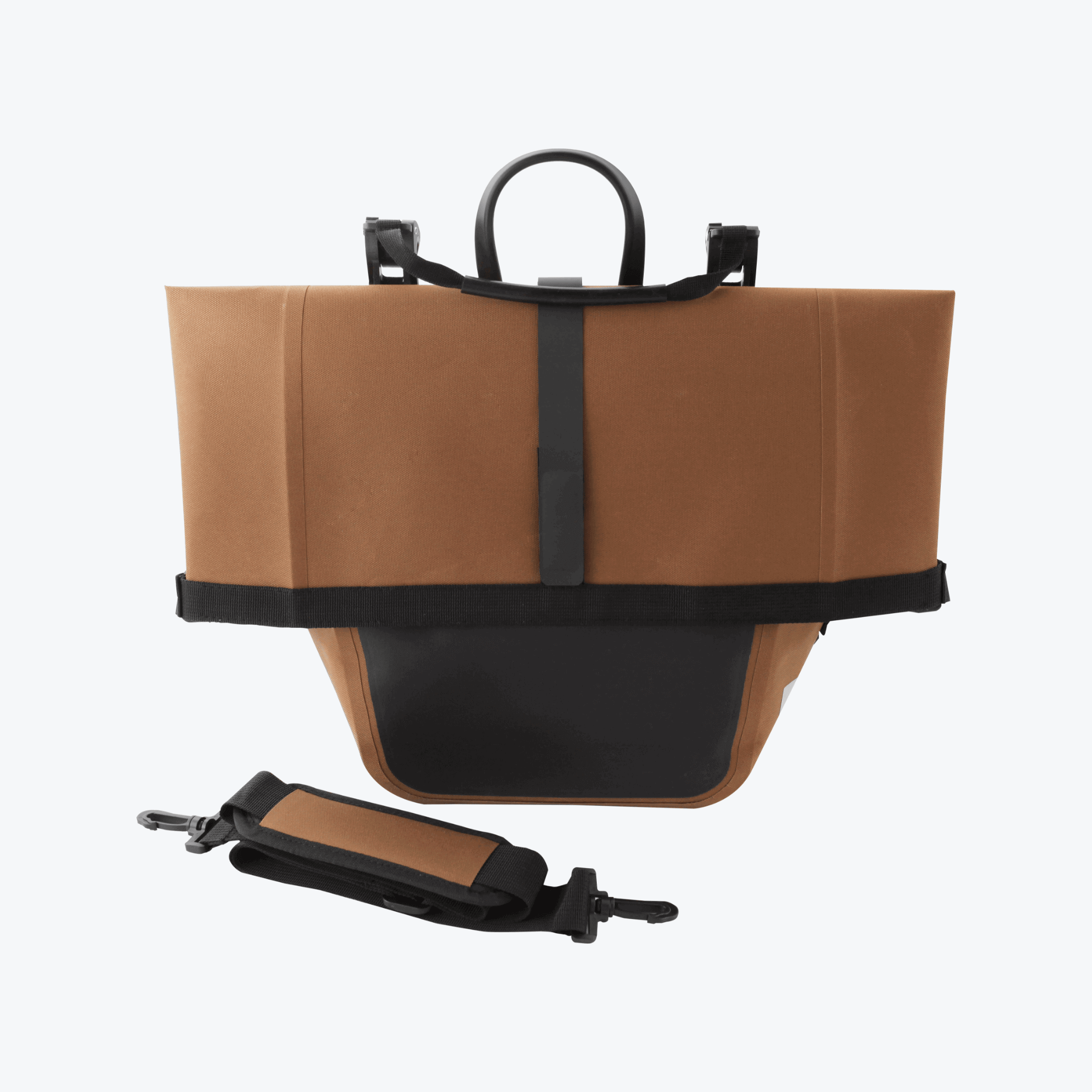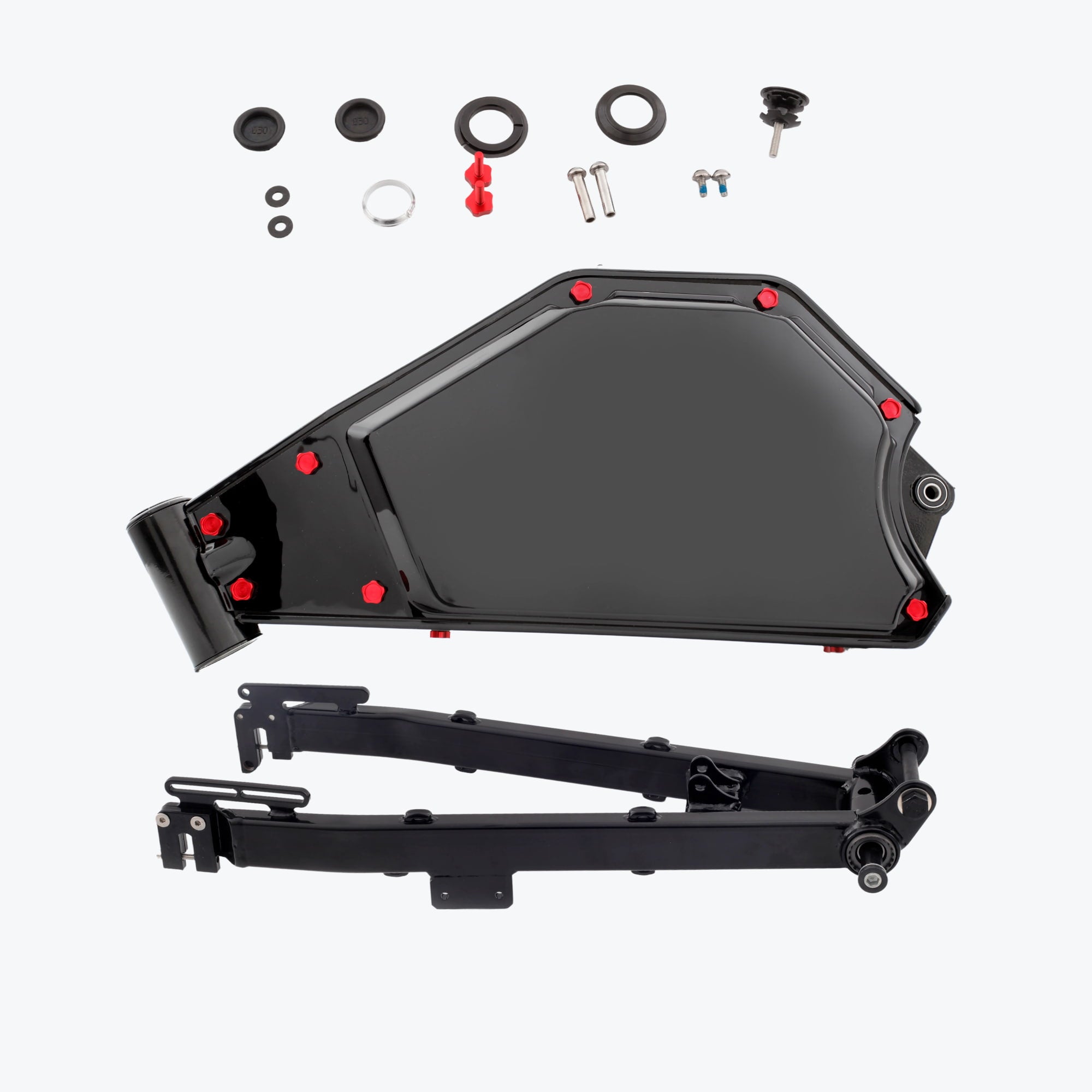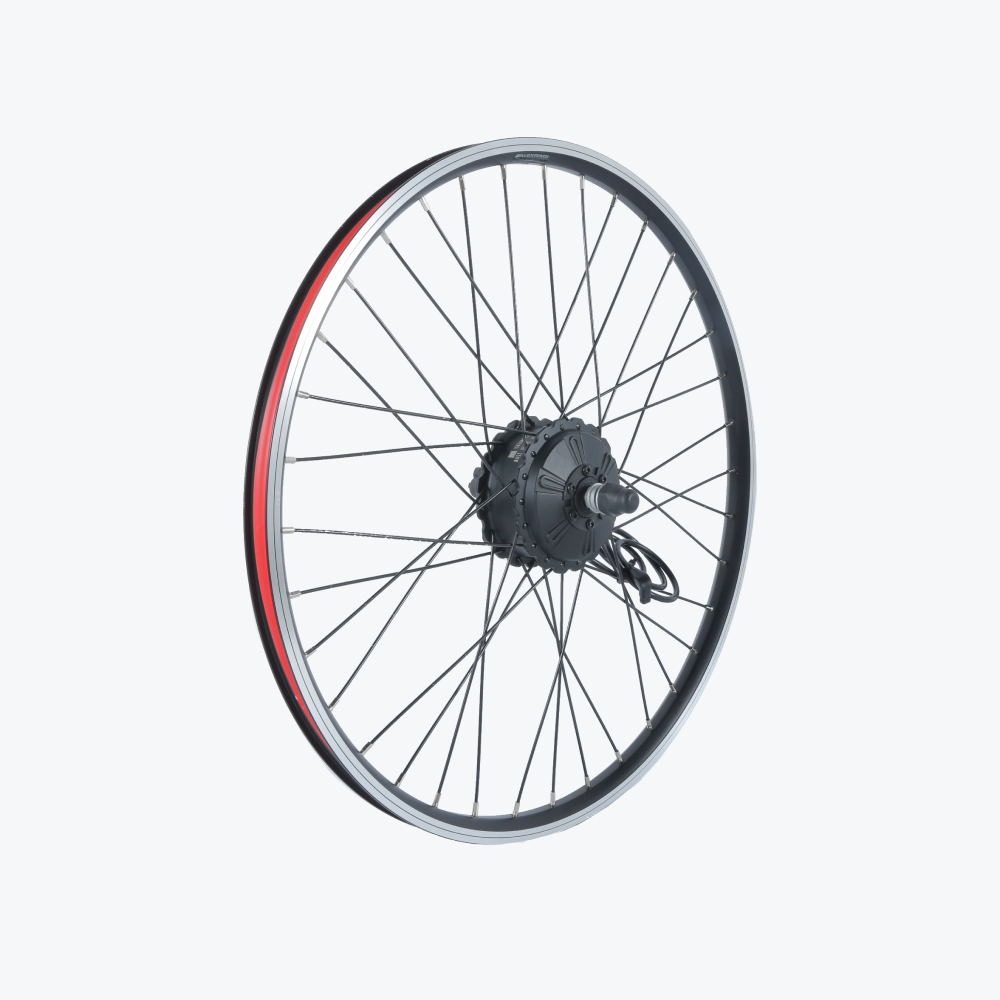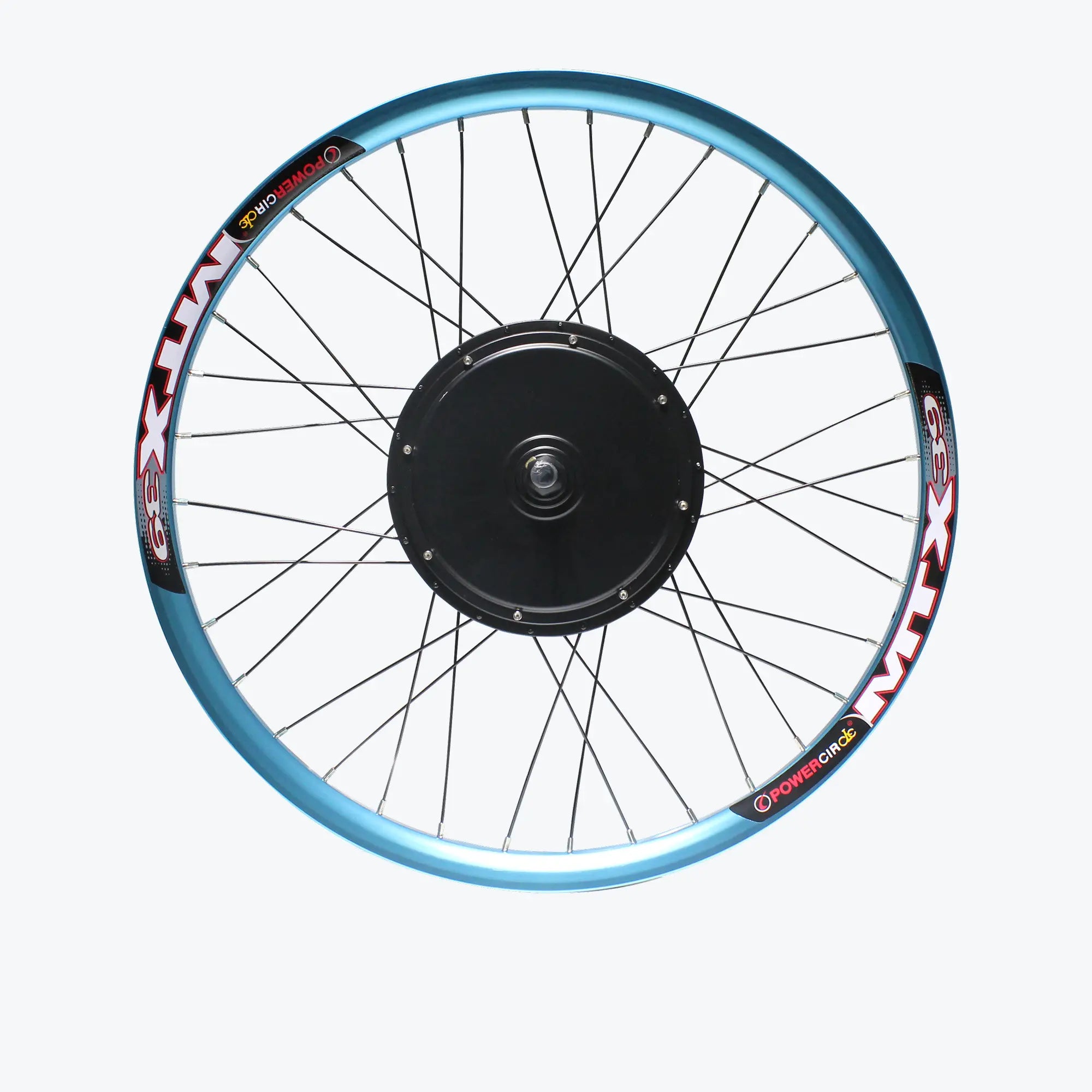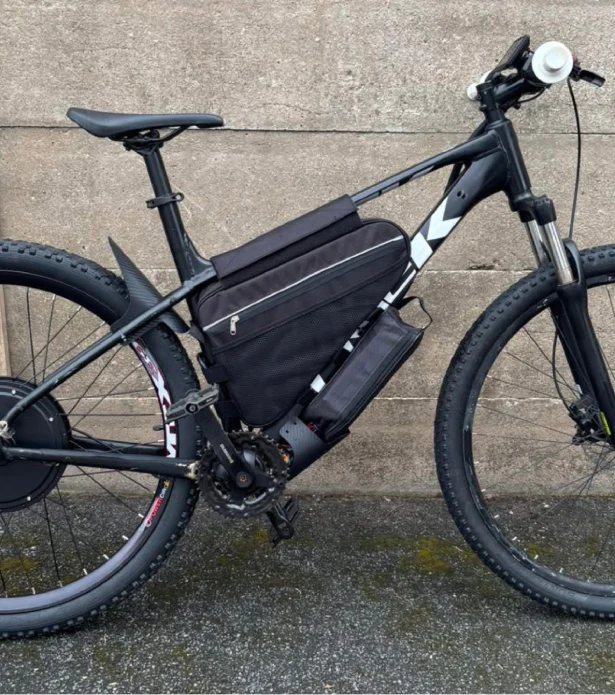As electric bikes continue to surge in popularity worldwide, one of the most critical choices for riders converting a standard bicycle into an e-bike is motor placement. The debate between front and rear hub motors has inspired countless discussions — and for good reason. Each design delivers unique handling characteristics, torque balance, and installation requirements.
In this guide, we’ll explore the electric bike rear hub motor, drawing comparisons with front hub motors (as seen in the SwytchBike front vs rear hub motor discussion), and highlight how KirbEbike delivers high-quality, powerful, and affordable rear hub and mid-motor conversion kits for every type of rider.
Whether you’re upgrading your daily commuter or building an off-road powerhouse, this article will help you understand how a rear hub motor works, what makes it special, and why KirbEbike might just be your ultimate e-bike upgrade partner.
Understanding the Electric Bike Rear Hub Motor

An electric bike rear hub motor is located in the center of the rear wheel and directly powers the bike’s rear axle. Unlike mid-drive systems, which send power through the bike’s chain, a hub motor propels the wheel independently. This makes the setup simple, reliable, and low-maintenance — ideal for riders who prefer smooth acceleration and consistent performance.
How It Works
When you engage pedal assist or the throttle, the rear hub motor uses electrical energy from the battery to turn the rear wheel. The result? Instant acceleration and a natural “push” that mimics the feel of a traditional bike while enhancing your power output.
Why Rear Hub Motors Are Popular
- Balanced Power Delivery: Pushing from the rear feels intuitive and natural.
- Strong Traction: Ideal for climbs, corners, and slippery surfaces.
- Low Maintenance: Fewer mechanical parts than mid-drive systems.
- Quiet Operation: Rear hub systems are known for their near-silent running.
At KirbEbike, rear hub motor kits are available in power options ranging from 250W to 4000W, catering to both road-legal commuters and adrenaline-seeking off-road riders.
Rear vs Front Hub Motors: What’s the Difference?
The SwytchBike blog comparison highlights key differences between front and rear hub motors — and those distinctions remain relevant for any e-bike buyer today.
|
Feature |
Front Hub Motor |
Rear Hub Motor |
|
Power Delivery |
Pulls the bike forward |
Pushes the bike naturally |
|
Traction |
Moderate, limited on loose terrain |
Excellent, especially off-road |
|
Installation |
Easier on most bikes |
Slightly more complex but stable |
|
Weight Balance |
Adds front-end weight |
Keeps weight centered and rear-biased |
|
Performance Feel |
Feels “pulled” |
Feels “pushed” – closer to traditional cycling |
While front hub systems like Swytch’s kits prioritize ease of installation, rear hub motors excel in performance, control, and rider confidence. They offer better grip on climbs and a smoother, more stable acceleration — qualities that KirbEbike designs its products around.
The Advantages of a Rear Hub Motor
a. Enhanced Traction and Power
Because power is delivered through the rear wheel — the same wheel responsible for traction — riders get better stability and climbing ability, even in challenging conditions.
b. Quiet and Efficient Ride
High-quality rear hub systems like KirbEbike’s 48V 1000W and 52V 2000W kits feature brushless motors that operate almost silently, offering a serene, efficient ride.
If your electric bike rear hub motor is making noise, it’s often due to loose components, worn bearings, or debris near the hub. KirbEbike provides comprehensive support and easy-to-replace parts to keep your motor running smoothly.
c. Lower Maintenance
Unlike mid-drive motors, hub motors don’t stress the bike’s chain or gears. This makes them ideal for everyday commuters who want a “fit-and-forget” solution.
d. Great Value for Money
Rear hub kits are generally more affordable than mid-drive systems. KirbEbike sells direct-to-consumer, meaning you get premium-grade motors and LG battery packs without the middleman markup.
e. Simplicity of Installation
Most KirbEbike rear hub kits can be installed in 20–30 minutes using basic tools. You replace your rear wheel, connect the controller and display, and you’re ready to ride.
KirbEbike Rear Hub Motor Conversion Kits

KirbEbike’s rear hub kits combine power, efficiency, and affordability — perfect for anyone from casual riders to performance enthusiasts. Let’s explore some of the standout options:
48V 1000W Ebike Conversion Kit
- Top Speed: 45–50 km/h
- Range: 35–60 km with 48V 16Ah Li-ion battery
- Torque: Strong hill-climbing performance
- Best For: Commuters and weekend riders
- Installation: ~20 minutes
This model offers a blend of performance and reliability, suitable for hybrid and mountain bikes.
52V 2000W MTX Rim Kit
-
Top Speed: 60 km/h+
- Torque: 120–140 Nm
- Best For: Riders seeking a serious boost for long rides or off-road terrain
- User Feedback: Customers report exceptional durability — many with 10,000+ miles logged.
72V 4000W Extreme Performance Kit
- Top Speed: 55 mph+ (off-road use only)
- Best For: Fat tire bikes and MTB builds needing raw power and torque
All kits are in stock and ship from UK and US warehouses, backed by 1-year warranty and free shipping — a key part of the KirbEbike promise.
The Mid-Motor Option: When to Upgrade
While rear hub motors deliver incredible performance, KirbEbike’s Mid-Motor Kits offer an alternative for those seeking the most natural pedaling experience and superior torque.
The TSDZ8 Mid Motor Kit (36V/48V, 500W–750W)
- Torque: Up to 140 Nm
- Motor Weight: 4.8 kg
- Range: 40–60 km
- Charging Time: 8–10 hours
- Display: Real-time speed, torque, and battery data
- Battery: LG 16Ah lithium battery, over 1000 recharge cycles
This torque-sensored mid-drive system adapts power based on your pedaling force, creating an ultra-smooth, intelligent ride. It’s ideal for riders who want precision control or frequently tackle steep gradients.
Compared to a rear hub motor, the mid-motor kit balances the bike’s weight better and allows full use of your gear range — perfect for performance cyclists.
You can explore the kit here:
Common Issue: Electric Bike Rear Hub Motor Making Noise
Even the best e-bike motors can develop noise issues over time. Here’s how to diagnose and solve common causes:
|
Noise Type |
Likely Cause |
Solution |
|
Grinding or clicking |
Loose cassette or axle nuts |
Tighten hub bolts and cassette lockring |
|
Whining under load |
Bearing wear |
Replace bearings or use motor grease |
|
Rattling |
Controller or wiring not secured |
Check wire routing and tighten connections |
|
High-pitched whirring |
Normal brushless motor sound |
Harmless; part of standard operation |
KirbEbike provides modular replacement components, so you can replace only what’s needed instead of buying a new kit. Their support team also helps troubleshoot sound or vibration issues through video calls or detailed repair guides.
Eco-Friendly Power: KirbEbike’s Mission
KirbEbike was founded by cycling enthusiasts who believe in sustainable, accessible mobility. Their mission is to make high-performance e-bike technology available to everyone — not just those who can afford factory-built e-bikes.
By offering conversion kits, KirbEbike empowers riders to recycle existing bikes instead of discarding them. This reduces waste, conserves materials, and supports a cleaner, greener transportation ecosystem.
Their direct-to-consumer model also cuts unnecessary distribution layers, ensuring fair pricing without compromising quality or performance.
How to Choose the Right Motor Setup

|
Rider Type |
Recommended Motor |
Why |
|
Commuter / City Rider |
36V 250W or 48V 500W Rear Hub |
Legal, quiet, energy-efficient |
|
Hybrid / Weekend Rider |
48V 1000W Rear Hub |
Great balance of speed and range |
|
Mountain / Trail Rider |
52V 2000W Rear Hub or 48V 750W Mid-Motor |
High torque, smooth off-road control |
|
Speed Enthusiast |
72V 4000W Rear Hub |
Maximum performance, off-road fun |
If you’re unsure which kit fits your bike, KirbEbike’s support team can guide you through the wheel size, voltage, and power compatibility. Most kits fit 20”, 26”, 27.5”, 28”, 29”, and 700C wheels.
Installation and After-Sales Support
KirbEbike’s philosophy is “DIY made simple.”
Each conversion kit includes all tools and parts — motor, controller, display, brake levers, crank arms, and throttle — plus video tutorials for easy assembly.
Customers consistently praise KirbEbike for:
- Fast UK/US shipping (2–5 days)
- Responsive customer service
- 1-year warranty
- Optional spare parts availability
Thousands of verified reviews on KirbEbike’s website highlight real riders achieving thousands of trouble-free miles with minimal maintenance.
Final Thoughts
An electric bike rear hub motor offers one of the most accessible and enjoyable ways to experience e-biking. With impressive torque, simplicity, and cost-efficiency, it’s perfect for beginners and advanced riders alike.
When you choose KirbEbike, you’re not just buying a motor — you’re joining a global community of riders who value quality, sustainability, and innovation. From 250W city kits to 4000W off-road beasts, every KirbEbike system embodies the brand’s promise:
“Making It Easy For Everyone To Ride An Electric Bike.”
Frequently Asked Quesitons
What is an electric bike rear hub motor, and how does it work?
A rear hub motor is installed in the center of your bike’s back wheel. It propels the wheel directly by converting electrical energy into mechanical motion. This setup offers smoother power delivery, better traction, and a natural “push” feeling — ideal for both city and off-road riding.
What should I do if my electric bike rear hub motor is making noise?
Noise can come from loose bolts, worn bearings, or misaligned parts. Check that your cassette and axle nuts are tight, and listen for grinding that could indicate bearing wear. KirbEbike offers easy-to-install replacement components and online guides to help resolve these issues quickly.
How does a rear hub motor compare to a mid-drive motor?
Rear hub motors are simpler, cheaper, and require less maintenance, while mid-drive motors like KirbEbike’s TSDZ8 kit provide higher torque and better efficiency on steep terrain. If you prioritize smooth acceleration and simplicity, a rear hub motor is perfect. If you want advanced performance and pedal sensitivity, go mid-drive.
Are KirbEbike rear hub kits road legal?
Yes — the 36V 250W kits are compliant with UK and EU e-bike regulations, with a top speed of 15.5 mph (25 km/h). Higher wattage kits, such as 1000W and above, are intended for private or off-road use.
How long does a KirbEbike rear hub motor last?
With proper care, a KirbEbike motor can last over 10,000–15,000 miles. The LG lithium batteries used in these kits are rated for 800–1000 charge cycles, ensuring years of reliable power and consistent performance.

